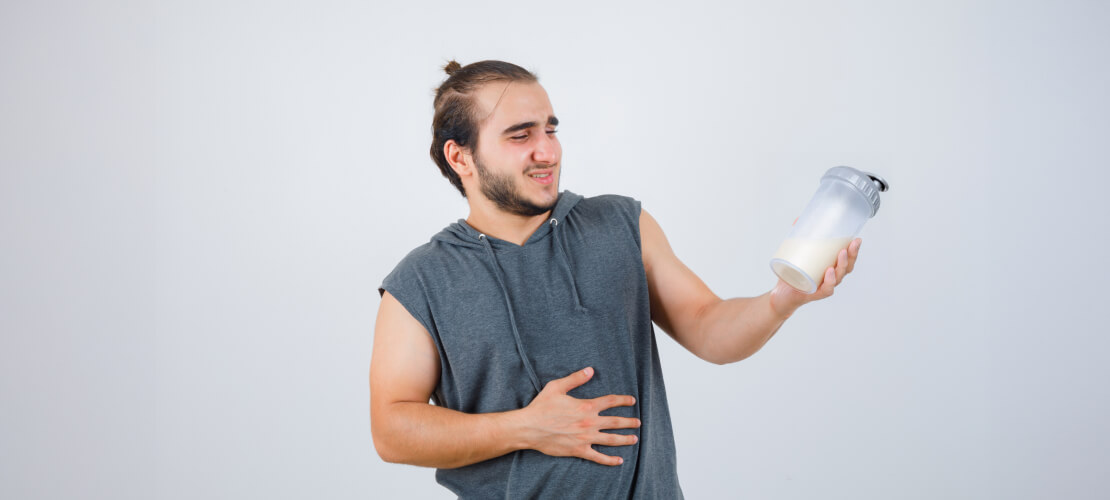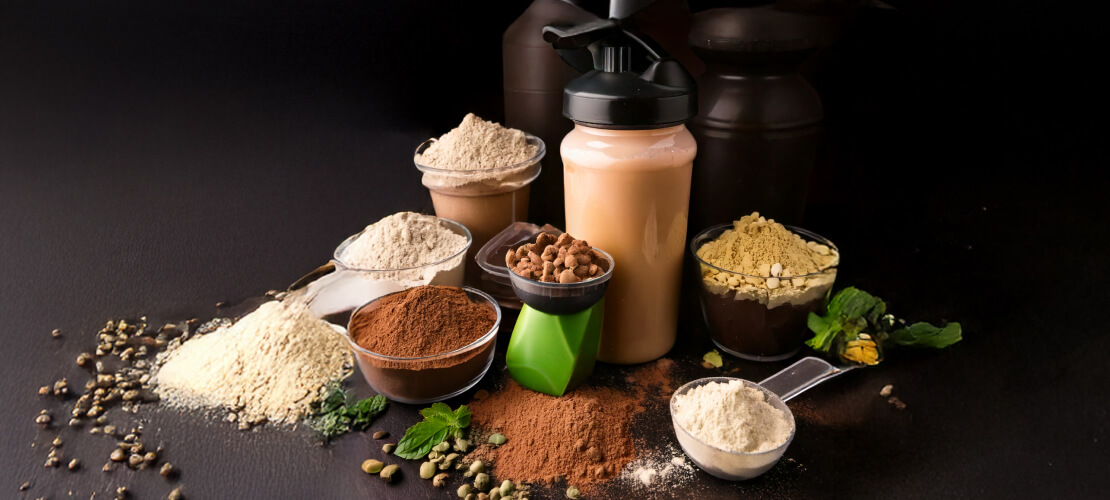Table of Contents
- 1. Don't Step Out with Oily or Greasy Hair
- 2. Keep Your Hair Covered When Stepping Out
- 3. Add a Deep Cleansing Routine Once a Week
- 4. Don’t Tie Your Hair Too Tight, but Don’t Leave It Open
- 5. Don't Step Out Immediately After Using Any Leave-In Conditioner or Serums
- 6. Keep Hair Hydrated
- 7. Use Natural Hair Products
- The Bottom Line
- FAQs
SHARE IT ON
It is supremely frustrating when you spend loads on hair care, desiring luscious locks, and instead get the same old frizzy, dry, and damaged hair. Yeah, pollution does that. It’s the villain we didn’t ask for but have anyway. And while we can’t exactly live in a bubble (though tempting, right?), we can definitely outsmart pollution and prevent hair damage. Let’s dive into seven smart ways to protect your hair from pollution and keep your tresses looking their best, regardless of the air quality index.
1. Don't Step Out with Oily or Greasy Hair
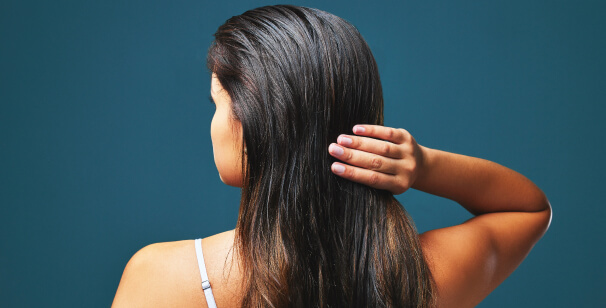
Your hair is like a sponge. Now imagine that you dip the sponge in a vat of oil before exposing it to dust.
Yikes, right?
Oily or greasy hair acts like a magnet for dirt and pollutants, which stick to the roots and scalp. When your scalp produces excess oil, it attracts grime and clogs your pores, leading to other hair woes like dandruff, hair fall, grey hair, fungal infections, and boils. It also damages the quality of hair, making it weak and dull-looking.
Why It Matters
Clean hair and scalp have a better defence mechanism against environmental pollutants. Less oil means less stickiness for all those nasty particles floating around.
Pro Hair Care Tip
Use a lightweight conditioner or hair mask, and wash your hair regularly. If you’re prone to greasy hair, wash your hair every third day and use non-greasy hair serums/gels/leave-in conditioners. Better yet, avoid using anything while stepping out.
2. Keep Your Hair Covered When Stepping Out

Scarves and chic hats are not just fashion accessories or statements. They serve a valuable purpose and add a fashionable punch to your outfits. Always cover your hair while leaving the house to prevent hair damage from pollution and sun. Additionally, it will also guard your hair from the wind. Don’t we all dislike wind messing up our hair after we spend considerable time setting it?
Why It Matters
Covering your hair minimises exposure to dust, smoke, sun, wind, and other airborne particles. Think of it as armour for your locks.
Pro Hair Care Tip
Choose breathable, natural fabrics like cotton or silk to avoid scalp sweat and irritation. A cute bandana or a wide-brimmed hat can be both functional and fabulous. Just ensure it’s not too tight so your scalp can breathe. Always cover your hair before wearing a helmet if you ride a two-wheeler, as the material inside the helmet can cause dandruff, hair fall, hair damage, and other hair problems.
3. Add a Deep Cleansing Routine Once a Week
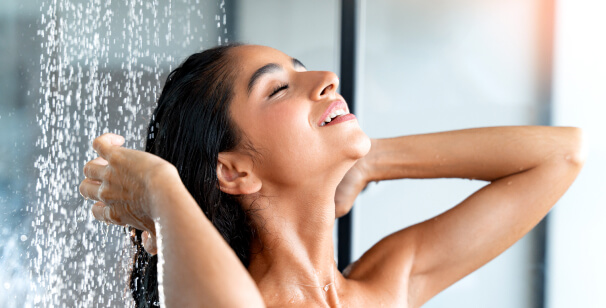
Even the most diligent hair washers need a deep clean every now and then. It is not advisable to use a lot of shampoos as your safest shampoos might include complex chemicals. Pollution particles can sneak past your regular shampooing, leading to buildup that weighs your hair down and dulls its shine. Use a lightweight, natural shampoo and get a silicon hair brush to use and spread the shampoo on your scalp. Massage your shampoo and conditioner into your hair while taking a bath using a shampoo brush.
Why It Matters
Deep cleansing removes stubborn pollutants, product residue, and excess oils, refreshing your scalp and hair. It also ensures equal distribution of products on the entire scalp. The brushing will also increase blood flow toward your scalp. Try doing this process with your head bowed down.
Pro Hair Care Tip
Invest in a good clarifying shampoo or try homemade hair masks. Use it once a week to give your hair a clean slate, but don’t overdo it. Too much brushing and shampooing can strip your hair of its natural oils and lead to hair breakage and irritation.
4. Don’t Tie Your Hair Too Tight, but Don’t Leave It Open

What a dilemma: You want to protect your hair but don’t want to look like you’ve just rolled out of bed. It is kinda tricky achieving the right balance. You desire buns, stylish braids, and ponytails, but you gotta remember tight hairstyles can lead to breakage and are a pollution magnet. Tight hairstyles are like a refuge area for airborne pollution and dust particles. But so is open hair as it gets all tangled up with the wind and pollution, so opt for loose and comfortable hairstyles like low ponies or plates.
Why It Matters
Finding a balance helps protect hair from pollution and damage while keeping pollutants at bay.
Pro Hair Care Tip
Go for loose braids, low buns, or ponytails that are secure but not too tight. These styles reduce friction and exposure without pulling on your roots. Remember to loosely tie your hair while sleeping to wake up to a clean, hairless pillow. Plus, they’re super cute and versatile!
5. Don't Step Out Immediately After Using Any Leave-In Conditioner or Serums
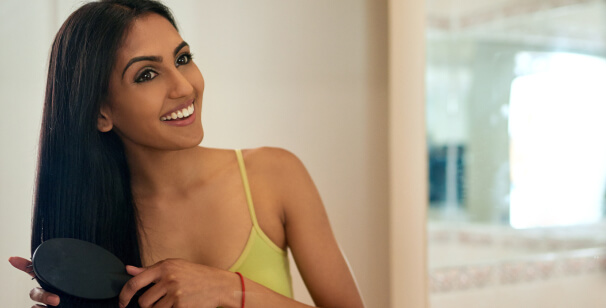
How many times did your hair stylist apply serum to your hair right before you paid and left the salon?
Big Mistake!! Also, it is a red flag, so dump your stylist and find a new one.
No matter how lightweight your serum or conditioner is, they are still greasy products that attract particles. Wait 15-20 minutes to dry it out and absorb it into your hair before stepping out.
Why It Matters
Leave-in products need time to absorb properly. Stepping out too soon can make your hair a sticky trap for pollution.
Pro Hair Care Tip
Apply your leave-in conditioner or serum at least 30 minutes before leaving the house. This gives the product time to fully penetrate and work magic without turning your hair into a pollutant magnet.
6. Keep Hair Hydrated
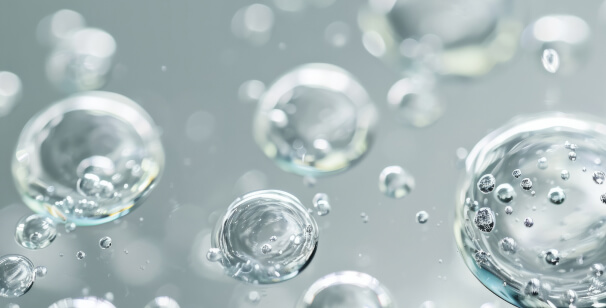
Hydration isn’t just for your skin; your hair needs it, too. Dry hair is more porous, making it more likely to absorb pollutants and prone to breakage and other hair problems. It also looks very frizzy, malnourished, and dull and is very difficult to manage. By hydration, we do not mean drinking water. We are talking about using natural ingredients for hair care and using hydrating shampoos and masks.
Why It Matters
Hydrated hair is healthy hair. It is less prone to breakage and hair damage due to pollution.
Pro Hair Care Tip
Use hydrating shampoos and conditioners, and consider adding a leave-in conditioner or hair serum to your routine. Maintaining a balanced diet rich in omega-3 fatty acids, vitamin D, proteins, and other nutrients also helps keep hair healthy and hydrated from the inside out.
7. Use Natural Hair Products
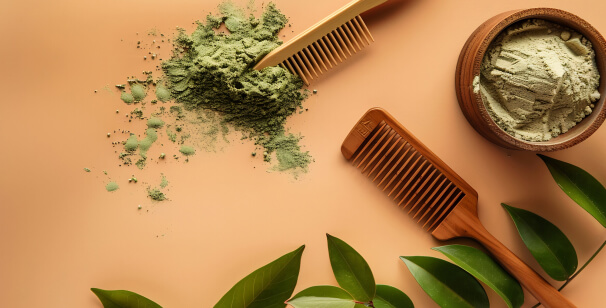
Your shampoo should be your hair’s best friend, not its frenemy. Heavy shampoos laden with chemicals can strip your hair of its natural oils, leaving it dry and vulnerable to pollution and damage. Most hard and harmful hair products are camouflaged behind famous brand names. You are actually paying a good amount of money to damage your hair. Choose natural substitutes for your hair care and see amazing results.
Why It Matters
Light, natural shampoos and conditioners cleanse without stripping your scalp and hair of the natural oils, helping maintain your hair’s natural protective barrier.
Pro Hair Care Tip
Look for shampoos with natural ingredients like Aloe vera, Tea tree oil, Chamomile, Amla, Bhringraj, Shikakai, etc. These are gentle on your hair and scalp and often have added benefits like soothing properties or enhanced shine.
The Bottom Line
There you have it – seven savvy strategies to protect hair from pollution and keep it looking fabulous. By following these best hair care practices, you can prevent hair damage and also boost hair growth. Remember, hair and skin routines take time and require dedication. You can’t just follow a routine for a week and expect results. You can start seeing an improvement after 1-2 months of continuous care.
FAQs
It’s recommended that oily hair be washed every third day. This helps control excess oil without stripping your hair of its natural moisture.
Use a clarifying shampoo once a week. It helps remove stubborn pollutants and product buildup without over-stripping your hair’s natural oils.
Yes, keeping your hair hydrated with natural ingredients and hydrating shampoos/masks can make it less porous and more resistant to pollution and breakage.
Yes, hair fall, balding, dryness, frizz, and dandruff are common side effects of pollution on hair.



